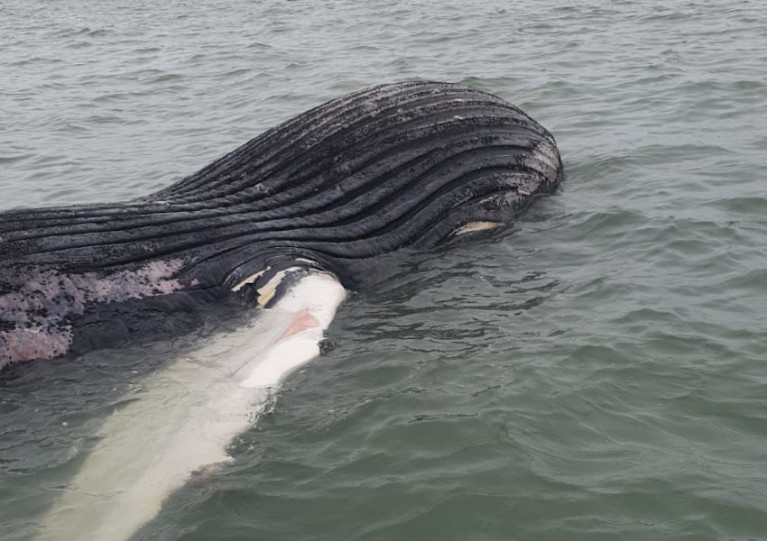The carcass of a juvenile humpback whale washed ashore in West Cork is only the ninth such stranding of the species in Ireland, according to the Irish Whale and Dolphin Group (IWDG).
Sightings officer Pádraig Whooley confirmed from images of the marine wildlife specimen captured in Roaringwater Bay yesterday (Wednesday 24 February) that it was a juvenile male not previously recorded in Irish waters.
Such young whales are not unexpected close to our shores at this time of year, when adults of breeding age are either en route to or already at lower-latitude breeding sites such as Cabo Verde off West Africa.
“This is something that some young humpbacks can opt out of, as it’s a long track south to places like the Cabo Verde and with no hope of successfully breeding there is nothing much in it for them,” Whooley explains.
“So a cohort of young, independent humpbacks seem content to over winter at higher latitudes, where there is, or should be, plenty of food for them.”
In this case, however, Whooley says: “The images we’ve received so far suggest it is in rather thin condition and so it may not have fed for some time.
“There are no obvious signs of rope marks or net damage that may suggest entanglement in fishing gear, something that slow-swimming humpbacks that remain inshore are prone to. And there are no large traumas to suggest ship-strike. So as is so often the case, the circumstances underpinning this stranding are unclear.
“IWDG hope in the coming days to visit the site to take detailed measurements and get skin and blubber samples which can be used for genetics, contaminants and stable isotope analyses.”
Whooley adds that the IWDG is in liaison with the National Parks and Wildlife Service (NPWS) regarding examination of the carcass and its disposal, but suggests that because of its remote location “there is no strong case for removal”.































































